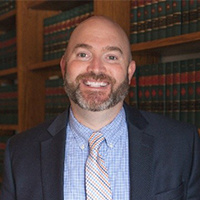Glen Wild RICO Act Lawyer, New York
Sponsored Law Firm
-
 x
x

Click For More Info:
-
Law Office of Mark S. Guralnick
55 Madison Avenue 4th Floor Morristown, NJ 07960» view mapCriminal Defense Law Dedicated. Fearless. Successful.
Mark S. Guralnick and his legal team have helped clients throughout the USA and across the world by applying unparalleled dedication and hard work to each case.
800-399-8371
Not enough matches for Glen Wild RICO Act lawyer.
Below are all Glen Wild Criminal lawyers.
Scott A Russell
✓ VERIFIEDCriminal, Wills & Probate, Employee Rights, Banking & Finance
With experience serving the public as an Assistant District Attorney, prosecuting minor traffic infractions and serious felony offenses, as public def... (more)
FREE CONSULTATION
CONTACTJohn Ferrara
Criminal, DUI-DWI, Divorce & Family Law, Family Law
David Alexander Maho
Divorce & Family Law, Criminal, Bankruptcy & Debt, Accident & Injury
Status: In Good Standing Licensed: 27 Years
Jacqueline Ricciani
Other, Employment, Criminal, Civil Rights
Status: In Good Standing Licensed: 30 Years
 Mark Guralnick Morristown, NJ
Mark Guralnick Morristown, NJ AboutLaw Office of Mark S. Guralnick
AboutLaw Office of Mark S. Guralnick Practice AreasExpertise
Practice AreasExpertise

